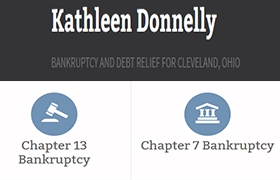Bay Village Collection Lawyer, Ohio
Sponsored Law Firm
-
 x
x

Click For More Info:
-
Law Office of Kathleen Donnelly
526 Superior Ave #1030 Cleveland, OH 44114» view mapChapter 7, Chapter 13, Free Evaluations Need Debt Relief? Contact Me Today
There is hope for debt relief. At the Cleveland, Ohio, law office of Kathleen Donnelly, we help people like you to escape from under mountains of debt.
800-413-4100
David F Hodous
Administrative Law, Collection, Consumer Protection, Contract
Status: In Good Standing
Jessica D. Gault
Estate Planning, Estate, Family Law, Collection
Status: In Good Standing Licensed: 14 Years
Kimberly A. Klemenok
Litigation, Workers' Compensation, Employee Rights, Collection
Status: In Good Standing Licensed: 27 Years
Scott David White
Collection, Family Law, Federal Appellate Practice, Bankruptcy
Status: In Good Standing Licensed: 32 Years
Cynthia Ann Warner
Dispute Resolution, Collection, Family Law, Personal Injury
Status: In Good Standing Licensed: 23 Years
Paul Randal Phillips
Litigation, Collection, Federal Appellate Practice, Real Estate
Status: In Good Standing Licensed: 36 Years
Bradric Thomas Bryan
Workers' Compensation, Corporate, Collection, Personal Injury
Status: In Good Standing Licensed: 35 Years
Sylvia Antalis Goldsmith
Child Custody, Misdemeanor, Credit & Debt, Collection
Status: In Good Standing Licensed: 29 Years

 Kathleen Donnelly Cleveland, Ohio
Kathleen Donnelly Cleveland, Ohio About UsKathleen Donnelly
About UsKathleen Donnelly Contact UsCall or Email Right Now
Contact UsCall or Email Right Now
